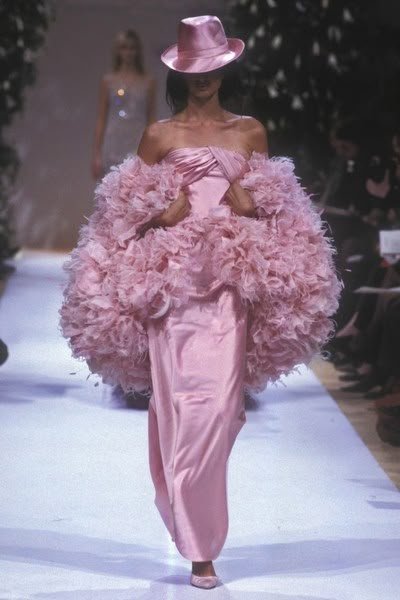
Sustainability in High Fashion
Looking at the sustainability of our favorite high-fashion brands
Some of the worlds favorite high-fashion brands are made in the same factories as Shein and Temu products. If Haute couture is made in-house and in ateliers, shouldn’t shoes, accessories, and ready-to-wear products be subject to the same production? Let’s look at how two big houses produce some of our products.
Dior & Sustainability: Can Haute Couture Really Be Green?:
When people think of Dior, sustainability probably isn’t the first thing that comes to mind. Luxury fashion is built on extravagance, lavishness, and a level of craftsmanship that feels worlds away from the eco-conscious minimalism often associated with sustainable fashion. But here’s the thing—Dior is trying to prove that high fashion and sustainability don’t have to be at odds.
Enter Dream in Green, Dior’s sustainability initiative that sounds just as poetic as the brand’s couture gowns. Christian Dior himself was obsessed with nature—gardens, flowers, all things beautiful and delicate—which makes it fitting that the brand is now pushing efforts to protect the very thing that inspired so many of its iconic designs. Through textile recycling, eco-friendly materials, and reducing greenhouse gas emissions (think boutique renovations that actually help the environment), Dior is aiming to redefine what luxury fashion looks like in a world that can no longer afford wastefulness.
One of the most interesting parts? Dior is focusing on circular fashion. Basically, instead of pieces being discarded after a few wears (looking at you, fast fashion), they’re designed to last, be restored, and even personalized over time. It’s the opposite of trend-chasing—it’s about creating timeless icons that hold their value beyond just one season. And honestly? That’s the dream.
Of course, no luxury brand is completely sustainable (yet), but Dior’s efforts show that haute couture isn’t just about beauty—it’s about responsibility. If a brand known for the ultimate in fashion fantasy can start taking sustainability seriously, maybe there’s hope for the rest of the industry too.
- Ming zheng
Miu Miu & Sustainability: Can it still be considered Made in Italy?
Miu Miu, a luxury offshoot of the Prada Group, gained immense popularity, particularly among fashion-forward young consumers. With its bold designs, iconic ballet flats, and viral moments featuring celebrities like Sydney Sweeney and Kendall Jenner, Miu Miu is a global name. Yet as the fashion industry faces increasing pressure to become a more sustainable le, the question arises: how sustainable is Miu Miu, and can the brand still be considered authentically “Made in Italy”? Miu Miu has made strides toward sustainability, notably with its use of upcycled materials. The brand’s upcycled denim collection, which includes items such as trucker vests, jeans, and headbands, is a testament to its commitment to circular fashion practices. Upcycling helps reduce demand for new materials, particularly denim, which has a well-documented environmental footprint due to its intensive water and chemical usage during production. By repurposing existing garments, Miu Miu contributes to reducing textile waste—a step in the right direction.
However, Miu Miu’s sustainability efforts are far from comprehensive. Despite the brand's upcycled collections, it still relies heavily on materials like leather, wool, and silk, which are notorious for their environmental and ethical impacts. Leather, for instance, is a by-product of the beef industry, which is responsible for significant deforestation and methane emissions. While Miu Miu has taken some steps to use Leather Working Group (LWG) certified tanneries, there’s a lack of transparency regarding the specifics of its leather sourcing. Additionally, the environmental costs of these materials, particularly in the luxury fashion space, cannot be overlooked. Several brands, including Miu Miu's parent company Prada, are starting to pivot away from leather, but Miu Miu has yet to make the full commitment to sustainable material alternatives that other luxury brands have begun exploring.
The brand also struggles with transparency in its supply chain. While it has made some efforts to trace its production process, it does not disclose where all of its final production stages occur, leaving gaps in accountability. Worse yet, there is no evidence that Miu Miu ensures living wages for its workers, a key factor in evaluating its overall sustainability credentials. The brand's lack of transparency around labor practices, especially in light of its parent company's recent report card on modern slavery, raises questions about the ethical foundations of its supply chain.
Miu Miu’s parent company, Prada, has faced criticism for its labor practices and supply chain transparency. A recent report from KnowTheChain and The Business and Human Rights Resource Centre gave Prada a meager score of 9 out of 100, highlighting significant gaps in its efforts to tackle modern slavery and improve labor conditions. Despite some progress, Miu Miu, as part of the Prada Group, is still linked to these labor concerns. The brand has not taken sufficient action to address the possibility of forced labor, particularly in the Xinjiang region of China, where cotton is allegedly linked to Uyghur forced labor.
Miu Miu’s popularity continues to soar, largely due to its stylish designs and celebrity endorsements. However, when it comes to sustainability, the brand is far from the leaders of the industry. While it makes attempts at circular fashion through its upcycled collections, its continued reliance on animal-derived materials and lack of transparency in its supply chain hinder its potential to be a truly sustainable label. Miu Miu’s failure to guarantee fair wages or take more significant steps to combat forced labor further tarnishes its reputation as an ethical brand.
Can Miu Miu still be considered “Made in Italy”? While the brand maintains a connection to Italian craftsmanship, its sustainability challenges suggest that the traditional definition of "Made in Italy," which has long been associated with quality and ethical practices, no longer comprehensively applies to Miu Miu. Unless it evolves to meet the higher standards of environmental sustainability and labor ethics, Miu Miu risks losing the essence of what makes Italian fashion truly iconic.
- Tatiana J.
